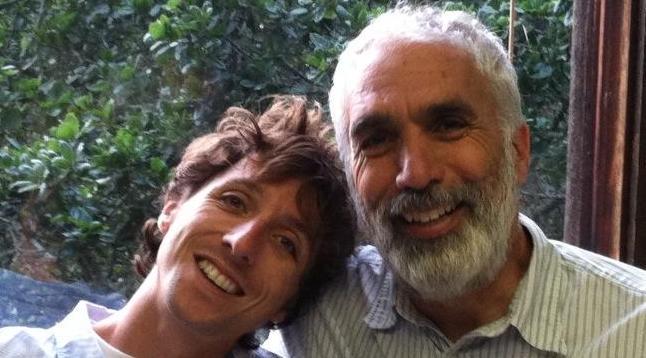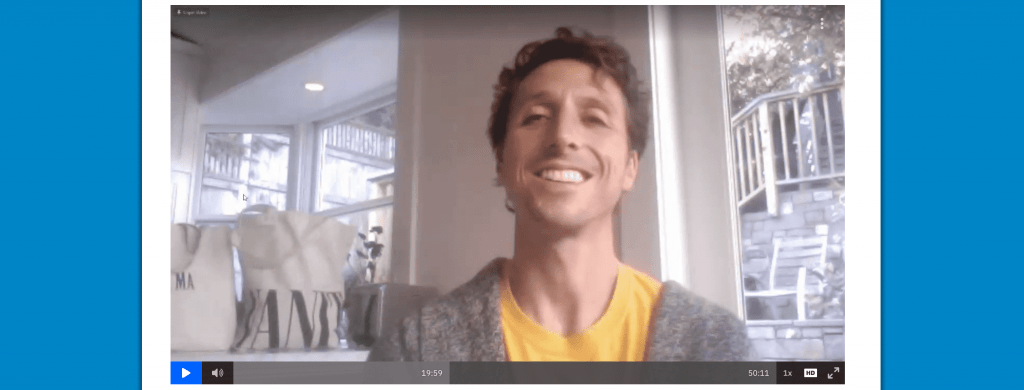If you are in the behavioral health space, you may already be familiar with Clifford Beers.
With a rich history that stretches back over a century, this organization currently offers programs and services to help meet a variety of mental and emotional needs for children and families in Connecticut. And, in the interest of transparency, they are also one of Sigmund’s valued customers.
17 years ago, Clifford Beers started an annual event called “Builders of Hope.” Traditionally, this event has been held as a breakfast, where community members and behavioral health professionals come together to explore issues that the patients and families of Clifford Beers deal with during their everyday life.
Unfortunately, there is nothing traditional about 2020, so what was supposed to be the “17th Annual Builders of Hope Breakfast” turned into the first-ever “Builders of Hope….The Movie!”
The team at Clifford Beers thought outside the box and on their feet to deliver a socially-distanced Builders of Hope experience. Patrons had the option to view the event on the big screen, drive-in movie style at the North Haven Fairgrounds, or tune in virtually from home.
I opted for a virtual ticket, and as I settled on to my couch with my dog curled up beside me, I was thankful for the opportunity to attend this important event from the comfort of my own home.
Nic Sheff: Recovering Addict, Mental Health and Addiction Treatment Advocate
The Builders of Hope Breakfasts typically feature a keynote speaker who addresses a behavioral health issue that is relevant to the Clifford Beers’ community, and thus the larger industry.
This year’s speaker was Nic Sheff. You may recognize that name, or even be quite familiar with him and his story.
Nic is perhaps most well-known as the author of his book, Tweak: Growing Up on Methamphetamines, and the subject of his father, David Sheff’s, book, Beautiful Boy: A Father’s Journey Through His Son’s Addiction.
If those titles ring a bell, both books served as the basis of the film, Beautiful Boy (2018), starring Steve Carrell and Timothee Chalamet.
I read Tweak and Beautiful Boy back in 2008 when they were first published. They each struck quite a chord with me in a different way.
Nic’s book is an honest, raw first-person account of his battle with substance abuse and mental health challenges, as well as his recovery.
As someone who’s dealt with mental health issues of my own, as well as witnessed several close friends struggle with substance abuse, Nic’s story is equal parts comforting and exposing. And as an aspiring writer at the time, Nic’s young and harshly candid voice was exhilarating.
David Sheff’s book provides the father’s perspective of Nic’s story. He offers an unfiltered view of how Nic’s addiction impacted his family. It’s a book that at times is viscerally painful, yet the story is anchored by the happy ending that is Nic’s recovery.
If you’ve ever experienced a loved one battle an addiction, I can attest that it is an achingly resonant story.

Photo from David Sheff’s Twitter (@david_sheff)
So, when Clifford Beers originally announced the event, I was psyched to get the chance to see Nic speak in person. Of course, that ideal scenario did not play out, but having Nic Sheff pop up on my computer screen on a quiet pandemic night was a unique and welcomed delight.
Mental Health Takeaways
Nic explained that he turned to drugs to alleviate a constant pain he felt. Eventually, he learned that the pain he was feeling was emotional and mental, rooted in mental health issues.
However, it took a long time for Nic to come to this understanding. For years, he never thought to ask for help. He didn’t think anyone else would understand.
Things changed when Nic entered a treatment center where doctors and specialists started to explore the mental health aspects of his substance abuse. This approach helped Nic figure out how to accept and love himself, which unlocked a new path to recovery.
In fact, Nic explicitly stated that if it weren’t for organizations like Clifford Beers that treat addicts with compassion and specialized care, he wouldn’t be alive today to tell his story.
He also started working with a psychiatrist at this time, who diagnosed Nic with bipolar disorder. This diagnosis provided much-needed context for his long battle with substance abuse.
Nic described the confusion and despair he endured for failing to shake his addiction on his own. Once he discovered that he was bipolar, though, he was able to rely on a behavioral health blueprint to help him navigate his substance abuse in a real, lasting way.
I was glad to hear Nic explain that achieving and sustaining recovery became possible once he received that combination of mental health and addiction treatment.
At Sigmund, we serve mental health and addiction treatment organizations and design our software to incorporate that same intersectional, multidisciplinary treatment approach.
As a prominent advocate for those struggling with mental health issues and/or substance abuse, Nic’s message is constructive, compassionate, and full of hope.

Substance Abuse Impacts the Whole Family
Another theme that emerged from the night is that substance abuse impacts the entire family.
Nic Sheff mentioned that reading his father’s book made him realize just how much his destructive substance abuse affected his family.
Clifford Beers knows this better than most. They see and reckon with the negative impacts that addiction has on the children and families they serve every day.
As a result, Clifford Beers offers 16 specialized programs and a whole host of unique services to meet the varied support its community needs.
The Sigmund Team is so happy that our software helps Clifford Beers deliver their compassionate and comprehensive care.
National Recovery Month
It was fitting that this event, which was originally scheduled for April, was moved to September, smack dab in the middle of National Recovery Month. Who better to celebrate the possibility and proof of recovery with than Nic Sheff.
Here are some additional blog posts and resources to help you participate in National Recovery Month:
- The Reach Out Connecticut Support Line: Alice Forester, CEO of Clifford Beers, referred to this phone service as a “warm line” rather than your standard hotline. It’s a free phone service that people can call to simply talk to mental health call specialists. These compassionate listeners are here to discuss, or just listen to people struggling with any of the mental health challenges of their daily lives.
- The Beautiful Boy Fund: Founded by David Sheff, the goal of this fund is to advance addiction treatment research, expand access to quality treatment, eliminate stigma and foster an understanding of addiction as a health issue through strategic grantmaking.
- Exploring Recovery Capital and How EHRs Are Designed to Facilitate this Addiction Treatment Approach: Recovery Capital is an addiction treatment approach that is centered around not just achieving, but sustaining, recovery. Learn more about the approach, and how modern EHRs are ready to facilitate this treatment method.
- Your Choices, Our Lives: A Quick Guide to Fair and Accurate Coverage of Addiction & Mental Illness from Faces and Voices of Recovery
- Teens and Rx Meds: What You Should Know and 11 Life Skills That Can Help Your Child in Recovery from Get Smart About Drugs

